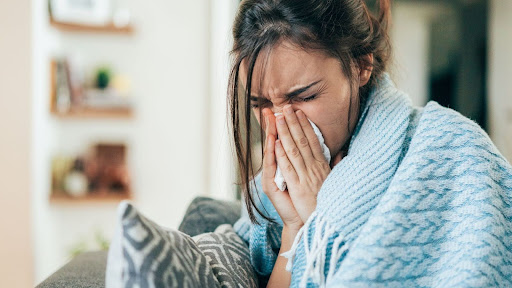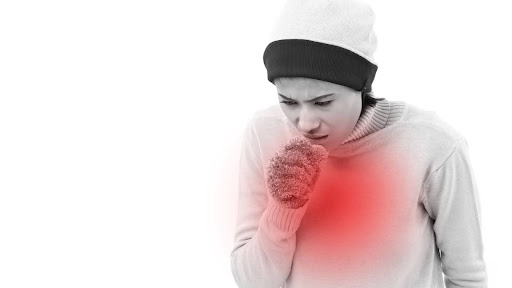Everything You Need To Know About Monkeypox Virus
4 min read
By DocGenie , Published on - 30 May 2022Monkeypox is a virus belonging to the smallpox family. It is a rare disease and usually originates in wild animals like rodents and primates and very occasionally infects humans. However, in the last few months, the monkeypox virus has suddenly spread to 20 countries, including the US, the UK, Australia, Austria, Belgium, Denmark, Finland, France, and Italy among others. To date, no cases have been reported in India.
According to the World Health Organisation (WHO), there are nearly 200 reported cases of the virus with more than 100 additional suspected cases. This is one of the biggest outbreaks of the virus outside of West Africa, where it has been endemic for years. The good news is that the viral infection is not yet endemic in other countries. Moreover, monkeypox cases so far have been mild, with no deaths reported. But scientists have been troubled by the fast transmission of the virus and have expressed concerns over recent developments. It is pertinent to note that monkeypox can be fatal for about 6 percent of cases and is generally more severe in children.
Causes
Monkeypox was first detected by scientists in 1958. At that time, there were two outbreaks of the disease in research monkeys, which gave the infection its name. In 1970, a young boy living in a remote village in Congo was the first human to get infected with the virus. Since then, most human infections have been in Central and West Africa, however, outbreaks have been relatively limited.
Interestingly, the monkeypox virus no longer comes from monkeys. According to scientists, small rodents and squirrels are the biggest spreaders of the infection now. There are two types of monkeypox virus — Central African and West African. The former type is more severe and is more likely to cause death than the latter. Additionally, monkeypox is more common in children and Africa, 90 percent of the infected ones were among children under 15 years old.
Transmission
The virus transmits when you come in contact with an infected animal, human, or with things and materials contaminated with the virus. According to scientists, the virus enters your body through broken skin, respiratory tract, or mucous membranes (present in the eyes, nose, or mouth). Transmission can occur via an infected animal, through-
- Bite
- Scratch
- Preparing bush meat
- Direct contact with body fluids
- Direct contact with lesion material
- Indirect contact with lesion material, (for instance, through contact with clothing, bedding, and other linens used by an infected person or animal)
Symptoms
Monkeypox causes flu-like symptoms. Early signs of monkeypox include–
- Fever
- Chills
- Rash with raised bumps develops within a few days
- Headache
- Muscle aches
- Fatigue
- Swollen lymph nodes
- Lesions on the face or genitals in people with more serious illnesses of monkeypox
In many cases, monkeypox symptoms are very similar to but milder than smallpox symptoms. The rash with raised bumps is usually first seen on the face. It eventually spreads to the palms and soles. In the beginning, the rash appears flat and red. After some days the bumps transform into blisters that are filled with pus. After some more days these blisters crust over and flake off.
How do doctors diagnose monkeypox?
Since monkeypox is rare, it can be misconstrued as measles, chickenpox, or other virus infections with rashes. To diagnose monkeypox, lab technicians examine a tissue sample, or at times a blood sample. They check the samples for the monkeypox virus or antibodies your immune system has produced against it.
Treatment
Monkeypox usually goes away on its own, in two to four weeks and infected individuals do not usually require hospitalization. To date, there’s no established treatment for the virus. Antiviral drugs can help but doctors don't recognize these drugs as official treatment options for monkeypox. Doctors usually monitor the condition of the infected person and recommend solutions to relieve the existing symptoms. If you are exposed to the virus, your doctor might monitor you for three weeks.
Since Smallpox and monkeypox are caused by the same family of viruses, those vaccinated against smallpox are also considered protected against monkeypox. However, with smallpox no longer a common disease, many people these days don't get vaccines for it, and hence don’t have protection against monkeypox.
In certain cases, the infection can become quite severe and these patients need to go to the hospital immediately.
Also read: 18 Highly Infectious Diseases You Need to Know About
DocGenie is an online telemedicine platform that provides you with quality healthcare from the comfort of your own space. On DocGenie, you can book an online consultation with highly qualified doctors as well as book lab tests for home collection.
Author Details

Dr.Rachna Kucheria
MD (Community Medicine) AIIMS New Delhi
MD (Family Medicine) USC California
Obesity Medicine Certification The American Board of Obesity Medicine
30+ Years of experience


